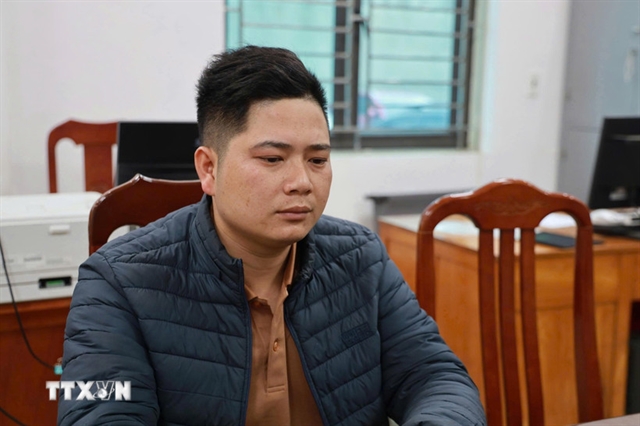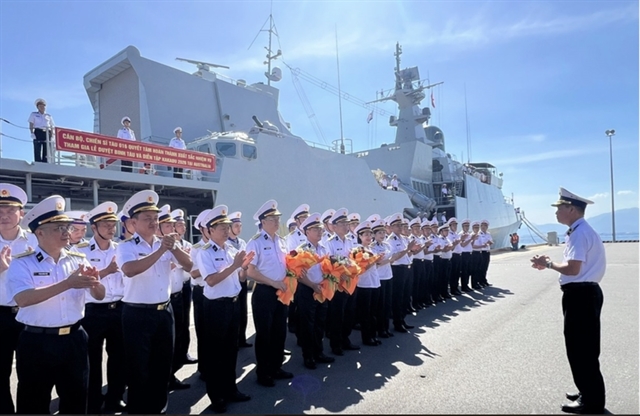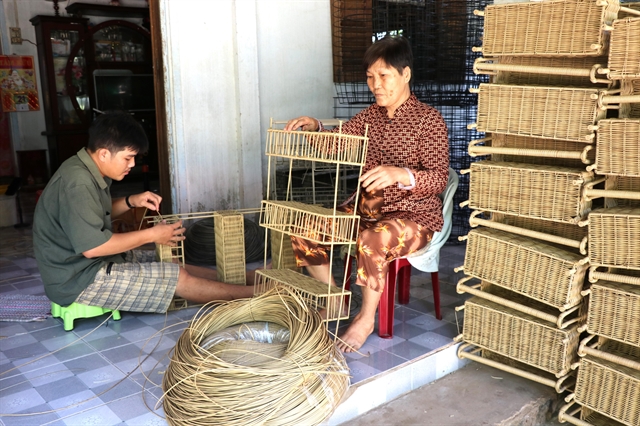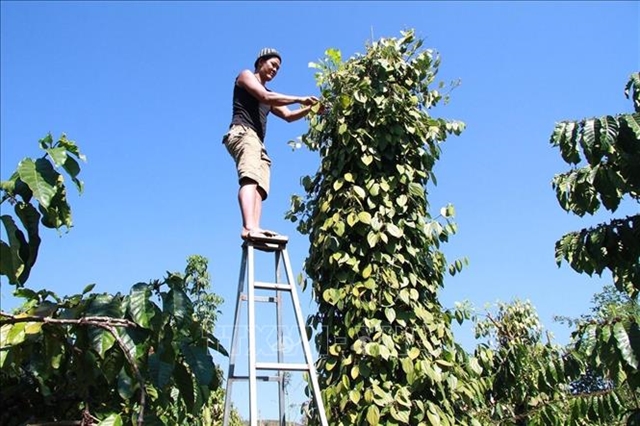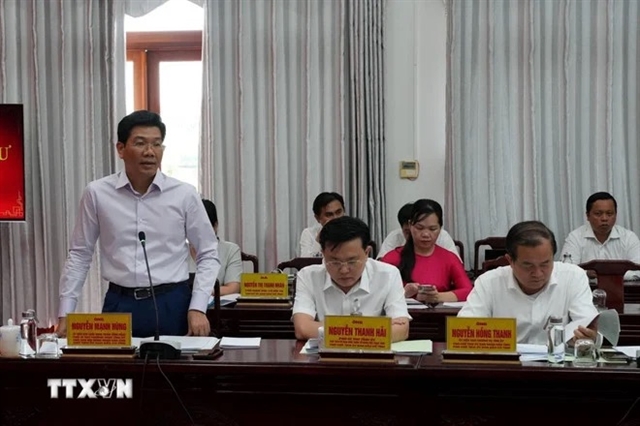 Politics & Law
Politics & Law

The Ministry of Foreign Affairs and heads of Vietnamese representative missions abroad are ready to work alongside domestic cities and provinces in comprehensively fostering external relations with other countries, said Deputy Prime Minister and Foreign Minister Phạm Bình Minh.
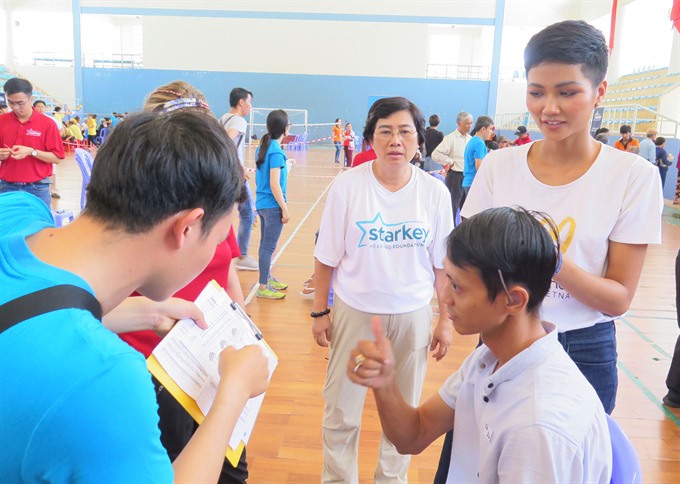 |
| The ’Community Hearing Care’ programme organised by VinaCapital Foundation and Starkey Hearing Foundation (US) at the central coastal province of Khánh Hòa’s Nha Trang University, has examined and provided hearing aids for 1,000 patients.—VNA/VNS Photo Phan Sáu |
HÀ NỘI — The Ministry of Foreign Affairs and heads of Vietnamese representative missions abroad are ready to work alongside domestic cities and provinces in comprehensively fostering external relations with other countries, said Deputy Prime Minister and Foreign Minister Phạm Bình Minh.
He made the statement in his opening remarks at the 19th National External Affairs Conference, which took place in Hà Nội on Sunday under the theme “Activeness and creativeness for effective integration and sustainable development.”
The biennial event was organised ahead of the 30th Diplomatic Conference slated for August 12-17, bringing together 500 delegates from ministries, state agencies and departments of external affairs of 63 cities and provinces nationwide alongside heads of Việt Nam’s diplomatic missions overseas.
The foreign ministry and Vietnamese diplomatic corps in foreign countries are willing to help localities introduce investment opportunities and promote trade abroad to expand the market. At the same time, the localities will be assisted in verifying partners and settling trade disputes against the backdrop of Việt Nam being a member of a number of new-generation free trade agreements, according to the deputy PM.
The ministry and diplomatic corps also aim to help the cities and provinces promote their image and signature products and work together to protect the rights of Vietnamese citizens, particularly fishermen, overseas.
According to Department of Foreign Affairs of Localities director Nguyễn Hoàng Long, the ministry and Vietnamese representative missions abroad have signed 420 agreements between Việt Nam’s cities and provinces and foreign localities and enterprises between 2016 and 2018, an increase of 20.3 per cent from the previous three-year period. The agreements have intensified friendship and co-operation between Việt Nam and foreign partners and helped promote the image and potential of the country and its localities.
‘Partners not sponsors’
Representatives from the local departments of external affairs nationwide also shared their experience in calling for resources from foreign non-governmental organisations (NGOs) to serve local socio-economic development.
Mai Thức, Vice Chairman of the Quảng Trị People’s Committee said that the nature of NGOs’ assistance had changed from “giving-receiving” to development co-operation.
Thức held that relations with foreign NGOs would need more attention, as their support provides an important resource for development. He suggested building a full legal framework for the reception and management of the resources, thus creating favourable conditions for agencies and organisations to expand international co-operation.
NGOs should be seen as partners instead of sponsors, he said, pointing to the need for enhancing the role of locals in foreign NGOs-funded projects.
Thức proposed that the Foreign Ministry coordinate with the Ministry of Planning and Investment as well as other relevant agencies to complete the Government’s Decree 12 on the registration and management of foreign NGOs’ operations in Việt Nam as well as Decree 93 on regulations of managing and using aid from foreign NGOs.
At the same time, Vietnamese representatives abroad should make foreign NGOs affairs one of their regular tasks, thus increasing the sharing and provision of information with foreign NGOs and supporting the NGOs to connect with localities at home.
At the conference, Nguyễn Thúy Anh, Vice Director of Đà Nẵng’s Department of External Affairs said in 2017, the city drew US$134 billion in aid from foreign NGOs. One of the major projects funded by the organisations was the $3.8 million “One Sky Đà Nẵng,” an international kindergarten for children of workers in local industrial parks invested by the US’s Half the Sky Foundation.
Anh said that the city’s leaders had sought ways to attract more support from business based in the city by calling for their corporate social responsibility.
Municipal agencies had also worked to approach NGOs and provide them with information of areas that need support, she added.
Commenting on foreign NGO affairs over past years, Vice President and General Secretary of the Việt Nam Union of Friendship Organisations Đôn Tuấn Phong said that the national programme on mobilising support from foreign NGOs had provided clear guidelines for foreign NGOs on priorities and needs of Việt Nam’s ministries, sectors and localities.
In the 1996-2017 period, foreign NGOs provided Việt Nam with over $4.1 billion in capital, helping the country cope with socio-economic difficulties, especially in poverty reduction and sustainable development.
Phong said that although Việt Nam had become a low middle-income country, the country still faced many difficulties and challenges, including war consequences, diverse disadvantaged groups such as the poor, Agent Orange/dioxin victims, the disabled, and people from ethnic minority groups and remote areas, along with the development gaps among regions, climate change and cross-border changes.
The challenges showed that the country would still need support from foreign NGOs in the role of partners, stated Phong. — VNS

